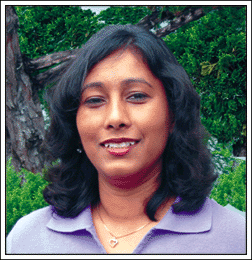OPENING POSITION
October 2003

What characterizes a successful trader? There is no better answer than the one Nassim Taleb provides in his book Fooled By Randomness: The Hidden Role Of Chance In The Markets And In Life. Successful traders are not fooled by the markets' randomness, but Taleb says that others have a tendency to hold their positions for too long; some switch between being traders and investors (if these "traders" start losing money, they suddenly become "investors" who hold onto positions long-term); some lack a well-thought-out plan that includes when to exit positions. The markets are random, yet many believe they are predictable. However, there's no way you can forecast where the markets will go next, regardless of what you hear on the news. Success in the markets has to do with being in the right place at the right time. Think of all your successful trades: Were they a result of your accurate prediction of price movement, or did you act on the probability of price moving in a certain direction? It's being conscious of the probability factor that makes all the difference. And it's this probability factor that should make you focus your attention on money management - an element in trading that is often overlooked.
Traders can easily get wrapped up in their desire to make money, lots of it, and quickly. They forget that there is a possibility - a large one - of losing it all and more. Perhaps it would be wiser to focus more on minimizing losses, as opposed to maximizing profits. That's what Tradingschool.com's Robert Deel, whom we spoke with for the STOCKS & COMMODITIES interview this issue, recommends. In addition, Deel stresses that money management strategies vary from individual to individual. He uses an equation that considers direction, level of discipline, risk, and leverage to determine each person's ability to trade; this helps traders to control their individual risks. While we're on the topic of risk management, it's necessary to bring up diversification. In this issue's feature article, "Diversification And Your Portfolio" by Phil Abel, you'll find out how adding commodity and financial futures can reduce your risk. But how can adding these risky securities to your portfolio reduce your risk?
Perhaps risk comes with randomness, but if you can avoid getting fooled
by it, you will end up making better trading decisions - whether or not
your calls are correct.
![]()
Jayanthi Gopalakrishnan,
Editor
Originally published in the October 2003 issue of Technical Analysis of STOCKS & COMMODITIES magazine. All rights reserved. © Copyright 2003, Technical Analysis, Inc.
Return to October 2003 Contents